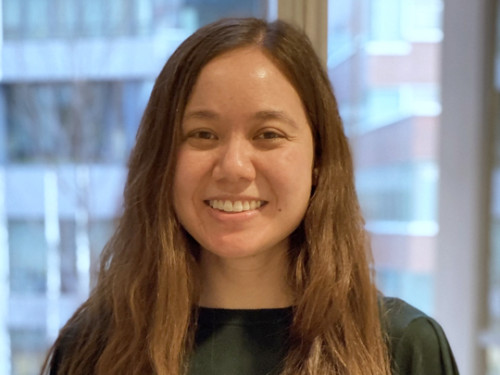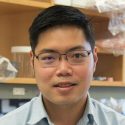Monica Neugebauer awarded 2024 Packard Fellowship
Monica Neugebauer, an assistant professor of biochemistry at the University of Wisconsin–Madison who works to identify enzymes that enable chemical reactions in living things and engineer them to be more efficient or work in new processes, is one of 20 scientists in the United States named a 2024 Packard Fellow for Science and Engineering.
“These scientists and engineers are the architects of tomorrow, leading innovation with bold ideas and unyielding determination,” says Nancy Lindborg, president and chief executive officer of the David and Lucile Packard Foundation. “Their work today will be the foundation for the breakthroughs of the future, inspiring the next wave of discovery and invention.”

Monica Neugebauer
The prestigious fellowship for early-career researchers includes $875,000 over five years to be used at the fellows see fit to best advance their research.
Neugebauer, who joined UW–Madison’s Biochemistry Department in 2023, discovers and engineers novel enzymes with functions beyond what is commonly found in nature. These enzymes have diverse potential applications, ranging from sustainable chemical production to therapeutics and diagnostics.
Neugebauer’s research is driven by her commitment to finding more sustainable catalysts, substances that facilitate chemical reactions.
“Some chemical reactions, including some used in industrial settings, are environmentally taxing. We can take advantage of both existing enzymatic activity and enzyme activity evolved in a lab to find more environmentally friendly ways of catalyzing these reactions,” says Neugebauer. “For example, some reactions require very hot temperatures, but if we can catalyze those reactions using enzymes, then we can run reactions at temperatures that require less energy input.”
Neugebauer’s research focuses on harnessing the power of metalloenzymes — proteins that contain a metal — to speed up chemical reactions. Her lab aims to discover metalloenzymes that have evolved over billions of years and to use lab-based protein evolution to engineer new metalloenzymes. With funding from the Packard Fellowship, Neugebauer hopes to accelerate the development and discovery of sustainable catalysts.
“I am especially grateful to be a Packard Fellow because the Packard Foundation is committed to sustainability,” says Neugebauer. “My group is passionate about both basic science and engineering. We’re fundamentally interested in understanding how enzymes work with an eye towards evolving enzymes that can perform chemistry more sustainably.”
Tags: biochemistry, faculty awards



